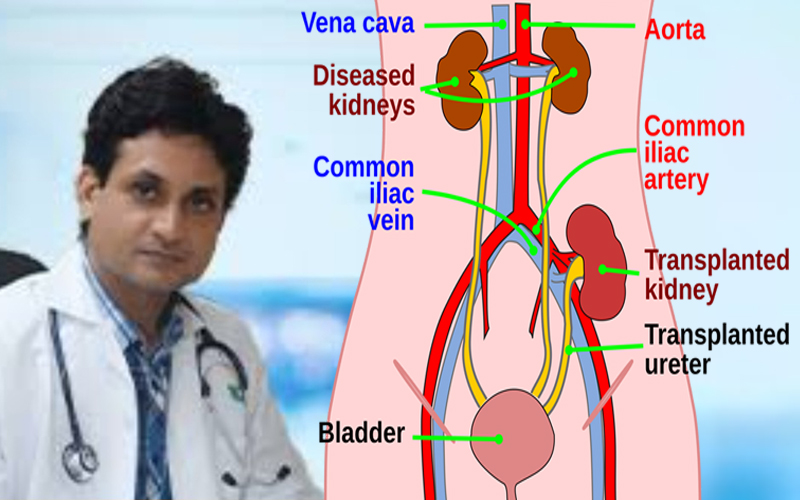 Kidney Transplantation
Kidney Transplantation
Optimising Post-Kidney Transplant Health: Does one need to change the diet?
A kidney transplant is a life-changing event that requires many emotional and physical adjustments. Embracing this new chapter involves not only adapting to the changes but also committing to a refreshed approach to diet and lifestyle to ensure the health of your new organ. Think of it as giving your body a new lease of life, where every meal and every choice plays a pivotal role in ensuring the long-term success of your transplant.
During a kidney transplant, the recipient's immune system is intentionally suppressed with medications to ensure the new organ is not rejected. This step is critical for the transplant's success. However, this immunosuppression increases the risk of infections. Carefully managing diet and lifestyle is vital to counter this risk and support a swift recovery.
A nutritious, balanced diet is essential for providing the nutrients needed to speed up healing and enhance the body's ability to defend against infections.
Key Diet & Lifestyle for Enhancing Post-Transplant Health
Weight Gain:
Many people have a better appetite after they have a transplant, which can lead to unwanted weight gain. It is important to eat the right portion sizes for weight management as well as blood sugar control. Limit high-calorie food items such as sweets, pastries, and other food high in fat or sugar. Increasing your daily water intake will also help. You can help control your calories by eating:
• Food high in fiber, such as vegetables and fruits
• Lean meat, skinned poultry, and fish
• Non-fat dairy products, such as skimmed milk
• Sugar-free drinks, unsweetened tea, coffee, or milk
Kidney Transplant and Sodium
Transplant medicines, especially steroids, may cause your body to hold on to fluid, and salt makes this problem worse. Increased fluid in the body raises blood pressure. Controlling blood pressure is very important to your transplant. It is a good idea to limit foods high in salt, such as:
• Table salt
• Pre-packaged frozen dinners
• Ramen noodles, boxed potatoes and packaged noodle and rice mixes
• Canned soups and pasta sauces
• Pickled food, such as olives and pickles
• Snack food, such as salted chips, nuts and popcorn
Challenges of Kidney Transplant Recipients: Reduced physical activity often causes poor fitness, significantly impacting their quality of life. Reduced activity is also linked to higher cardiovascular risk and increased all-cause mortality rates.
Exercise Benefits & Recommendations: After transplantation, individuals should begin incorporating exercises such as walking, aerobic workouts, resistance training, and balance exercises into their routine. These exercises can be modified to suit the patient's abilities and progressively intensify as they recover. Aerobic, resistance and flexibility exercises are generally safe and effective when performed at a moderate intensity.
Post-transplant health for kidney recipients relies on a comprehensive approach that includes managing diet, lifestyle, and physical activity. While medications are crucial for preventing organ rejection, they also raise the risk of infections. Therefore, supporting the body with a nutrient-rich, well-balanced diet is essential. By including a diverse range of lean proteins, whole grains, fruits, vegetables, and healthy fats in their daily meals, kidney transplant recipients can significantly improve their recovery and overall well-being.
Disclaimer: This information is provided by a qualified healthcare professional. However, it is essential to consult with family members and respective healthcare professionals before making any decisions regarding organ donation or transplantation.
Support Our Journalism
We cannot do without you.. your contribution supports unbiased journalism
IBNS is not driven by any ism- not wokeism, not racism, not skewed secularism, not hyper right-wing or left liberal ideals, nor by any hardline religious beliefs or hyper nationalism. We want to serve you good old objective news, as they are. We do not judge or preach. We let people decide for themselves. We only try to present factual and well-sourced news.







